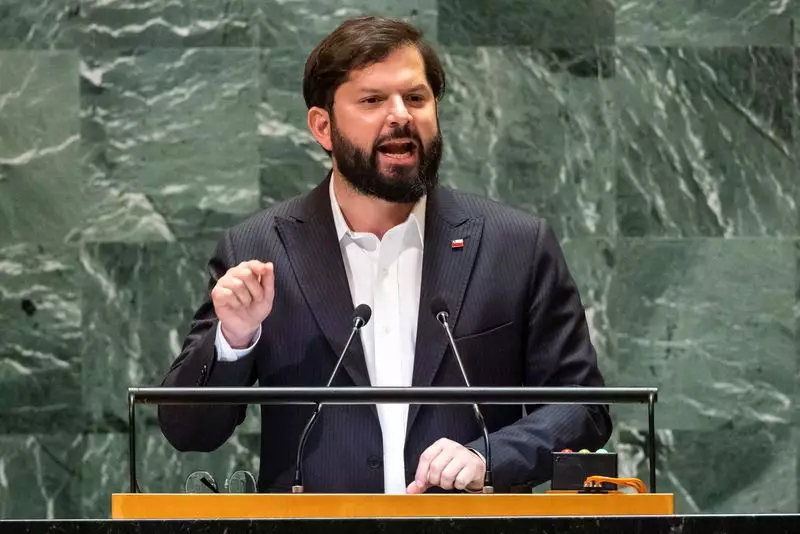In a significant announcement, Chile’s President Gabriel Boric has unveiled plans for a 2.7% annual increase in the national budget for 2025. This proposal comes at a critical time for the government, which is grappling with various economic challenges and a need to address the safety and security concerns of its citizens. The budget aims to bolster essential services such as pensions and healthcare, while also emphasizing the importance of national security.
The allocation for justice and security is set to rise by $1.5 billion compared to the previous year. Boric has underscored the urgency of this increase, noting that the enhancement of police presence, officer compensation, and prison infrastructure is pivotal for public safety. His commitment to prioritizing security suggests a clear response to public anxieties about crime and unrest. In Boric’s words, “Guaranteeing your right to security is the first priority for my government,” a statement reflective of his administration’s increasing responsiveness to the demands of citizens for improved safety measures.
President Boric’s government is also confronting challenges related to migration. In recent months, there has been a marked shift in policy regarding illegal migration, with Boric advocating for stricter border controls and expulsion of migrants who fail to comply with the official biometric registration. This decision aligns with his remarks made at the United Nations General Assembly, where he attributed the complications surrounding migration to the ongoing crisis in Venezuela, which has resulted in mass emigration.
While prioritizing national security, the emphasis on immigration control raises critical questions about how the government will balance humanitarian responsibilities. Boric’s stance could foster tension between preserving public order and ensuring the rights of migrants. Striking a balance between security measures and humanitarian obligations will be crucial for the government as it navigates this complex issue.
The 2025 budget proposals not only focus on security but also emphasize social welfare, with significant increases in funding for essential sectors like health and education. Boric has announced an impressive 42% increase in resources allocated to immunization programs. This investment highlights a commitment to public health, particularly important in the wake of the global pandemic.
Moreover, the budget also aims to digitize sector permit processes, which Boric believes will expedite investment activities. This push towards modernization exemplifies a forward-thinking strategy that could enhance economic growth, especially as Chile’s central bank predicts a slight slow-down in the fiscal landscape.
Despite the optimistic budgetary increases, the economic projections remain cautious. The central bank has revised its growth forecast downward, suggesting that the economy might expand between 2.25% and 2.75%. In light of this, the government targets a modest 2.6% growth rate in line with its proposed budget strategy.
As the Chilean Congress prepares to review the budget proposal, the upcoming discussions and deliberations will be critical in shaping the country’s fiscal future. The successful passage of this budget will not only influence the 2025 fiscal year but also set a precedent for the government’s approach to governance, social welfare, and national security in the years to come.

